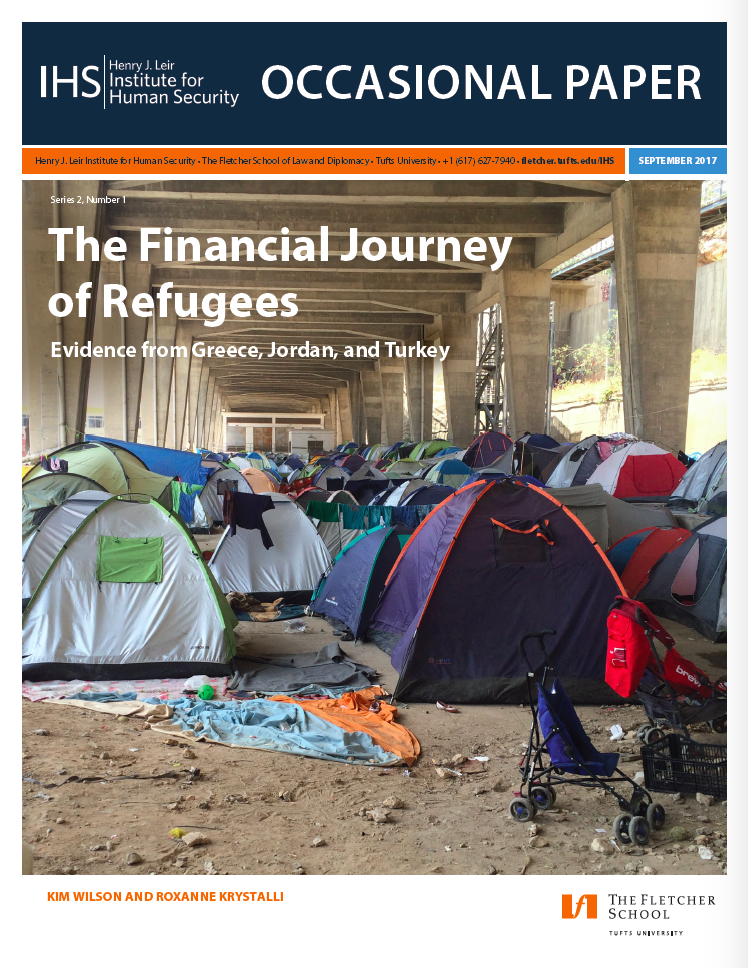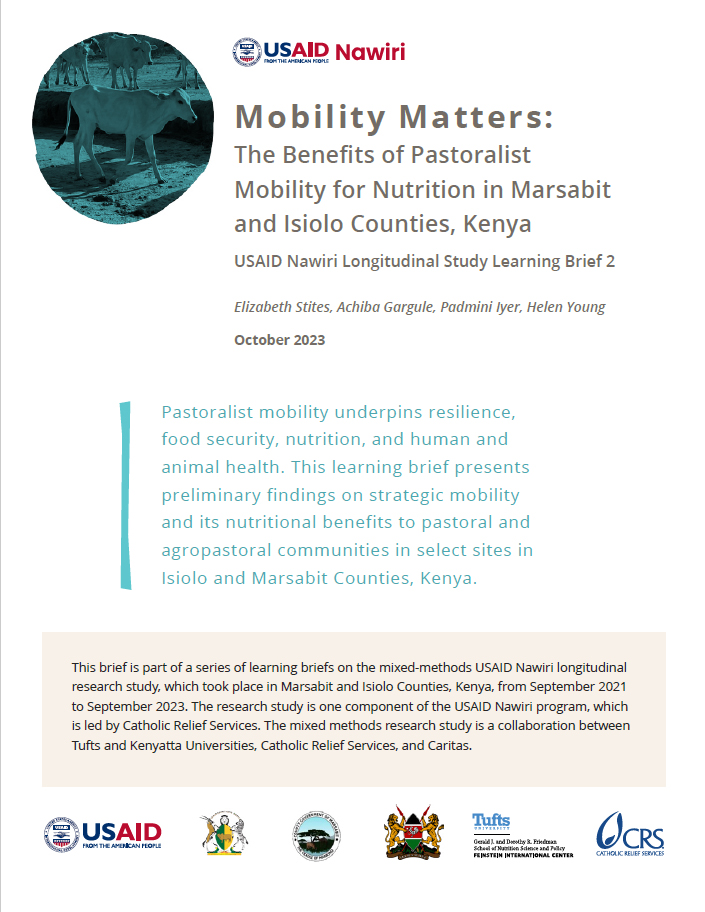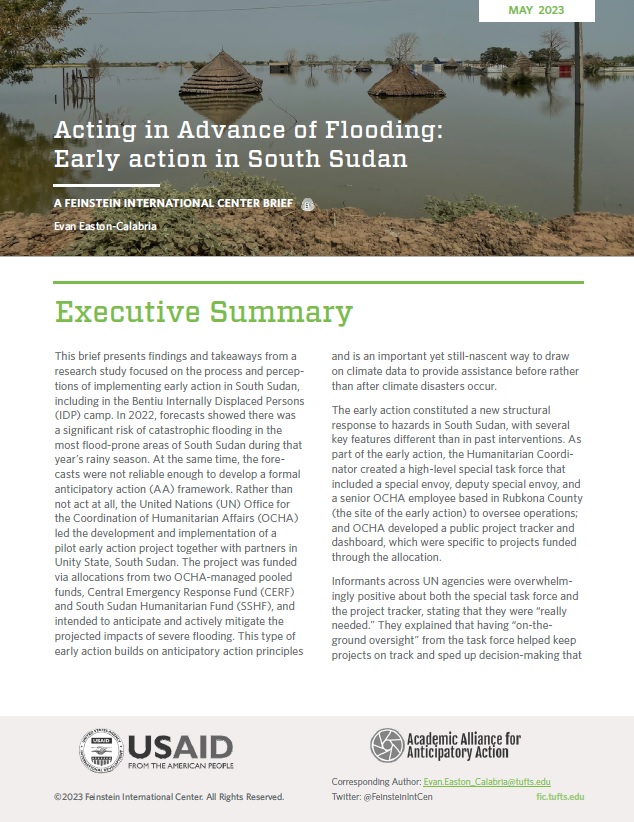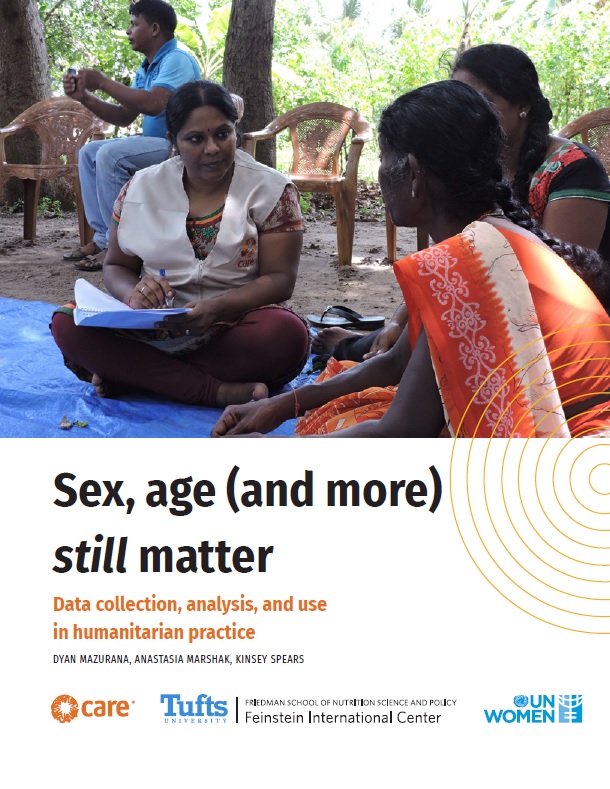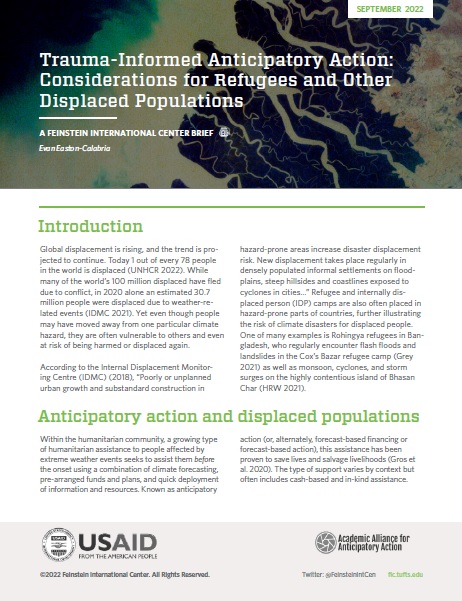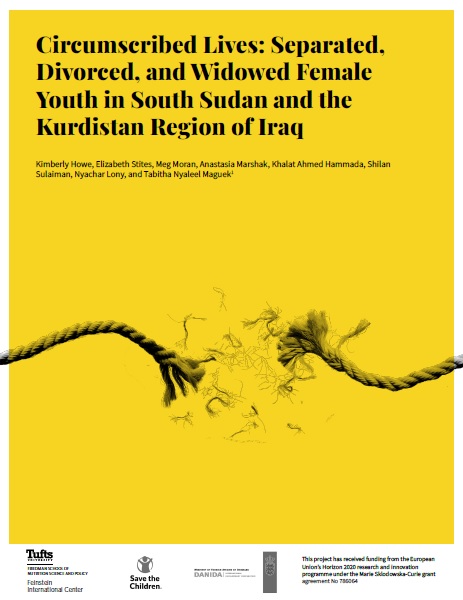This report investigates what money and financial transactions can reveal about the journeys and experiences of forced migration. The research on the financial journey of refugees examines money as a key node of the displacement experience and highlights the transactions and the power dynamics that unfold among refugees as well as between refugees and formal or informal authorities.
Four areas of inquiry emerged during the study:
- How do refugees gather, move, store, spend, and make money along the journey of their displacement? How do their strategies lead to enhanced risk and/or self-protection along the way?
- How do financial transactions structure relationships among refugees, as well as between refugees and formal or informal authorities, such as smugglers, informal money transfer agents, and formal banking systems?
- How does the humanitarian system—and, in particular, cash assistance to refugees— shape the aforementioned financial transactions and relationships?
- What are the roles of refugee identity—in terms of gender, ethnicity, religion, and family status—and the documentation of that identity in shaping financial transactions, relationships, vulnerability, and coping strategies?
The report contains several key findings regarding the financial portfolios of refugees, financial relationships on the move, humanitarian assistance as part of refugees’ financial portfolios, and identity on the move.
The Financial Journeys of Refugees is a qualitative study that unfolded between July 2016 and April 2017 at multiple sites in Greece, Jordan, and Turkey. The findings are based on interviews with 120 refugees and 33 key informants as well as observations conducted at refugee camps and shelters, informal refugee settlements, money transfer offices, and other locations.
It is an Institute for Human Security (IHS) working paper. Find resources related to this publication on the IHS website here.

